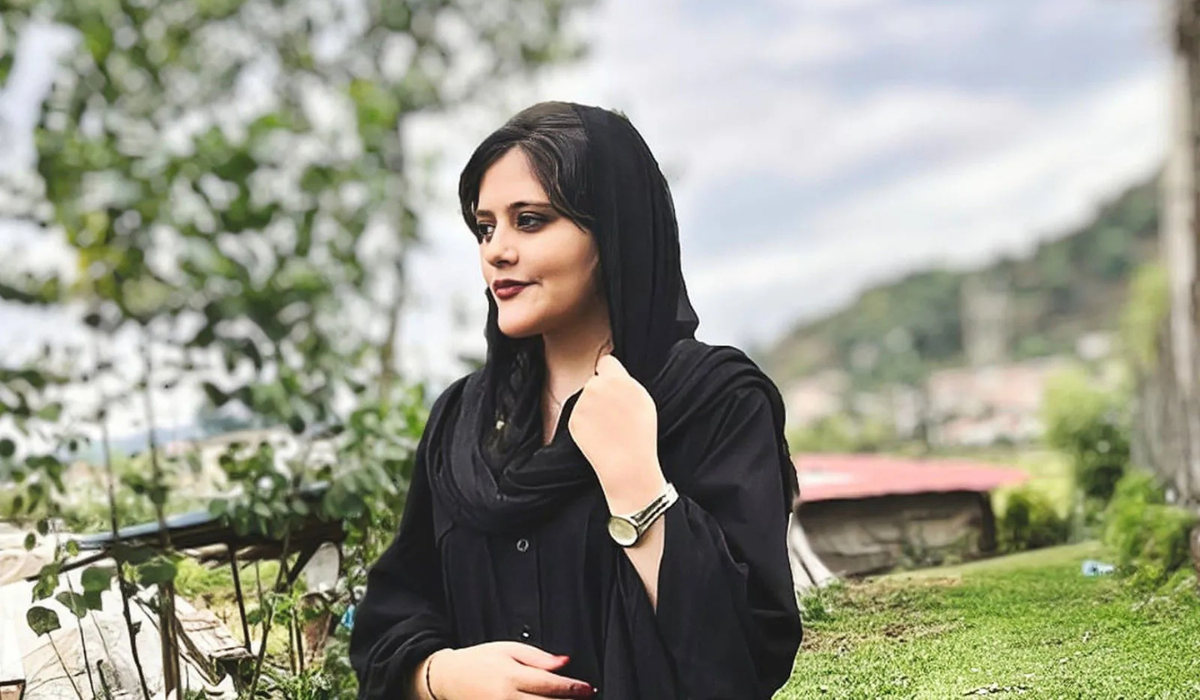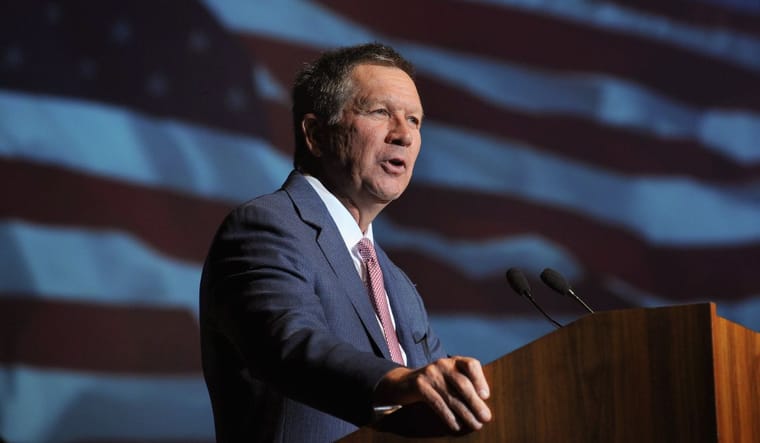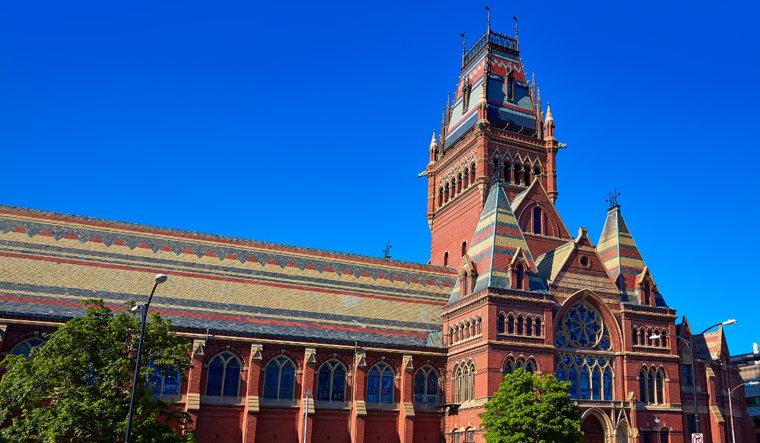One Year Since Mahsa Amini Died the Women of Iran Are Still Fighting for Their Rights. Here's An Update
On September 16, 2022, Masha Jina Amini died in police custody after being arrested and brutally beaten by Iran's "morality police." Amini, who was 22, had failed to cover her hair adequately with a veil.
In the year since, outrage from girls, women, and people of all genders has permeated the streets of Iran and the world. Freedom from and justice against Iran's tyrannical regime is a must—but it is still not the reality.
Iranian American scholar, author, and renowned women's rights activist Nina Ansary, Ph.D., who spoke with The Sunday Paper last year, informs us of the atrocities and the fight we must all continue to participate in.
A CONVERSATION WITH NINA ANSARY
The first anniversary of the murder of Mahsa Amini is on September 16. This horrific event under a tyrannical regime has fueled protests across the world. How have you seen people unite and resist this past year?
The one-year since the murder in police custody of Mahsa Jina Amini and the Woman. Life. Freedom movement has been marked by an outpouring of grief and outrage in Iran and the global community —with unprecedented support and solidarity with the courageous people of Iran in their fight for freedom, basic rights, and human dignity. Women and girls continue to lead with powerful and symbolic acts of civil disobedience and are not backing down despite brutal repression. The international community and the Iranian diaspora continue to support, encourage, amplify, and raise awareness. They have been a crucial force in backing the protests, condemning the violent crackdown, and spotlighting the ongoing brutality by the regime. The Iranian diaspora, in particular, has been relentless in their activism, calling for increased and targeted sanctions and for the Islamic Revolutionary Guards Corps (IRGC) to be proscribed as a terrorist organization. Their collective activism alongside world leaders, international organizations, and women's rights groups resulted in symbolic victories, including the adoption of a resolution to expel the Islamic Republic from the United Nations Commission on the Status of Women (UNCWS) and the establishment of an independent fact-finding mission to investigate and document human rights violations related to the protests.
Additionally, the initiative launched by Iranian and Afghan women to have gender apartheid recognized as a crime under international law and the Mahsa Amini Human Rights and Security Accountability Act ("Mahsa Act"), a bi-partisan legislation introduced to the 118th Congress, are critical pillars in holding the regime accountable for its ongoing crimes against humanity.
What concerns you about the global community at this moment?
The international community needs to be consistent in its attempts to increase the cost of repression. Organizations like the United Nations, which is responsible for ensuring the promotion and protection of human rights, should not be assigning leadership roles to Islamic Republic officials given the recent appointment of their so-called Ambassador as Chair to the United Nations Human Rights Council's Social Forum and their envoy as one of the vice-presidents of the 78th meeting of the United Nations General Assembly scheduled to take place September 18th in New York City. And in late August, the official visit of the President of the Islamic Republic to South Africa—a country which has made significant strides in justice and the rule of law.
Iranians are committed to bringing about the regime's demise and feel that the people must drive any transformation. However, the global community still plays a significant role beyond extending messages of support. This protest banner sums it up best: "Iranians do not need you to save them. They only need you to stop saving their murderers."
Mahsa's death is about women's rights and human rights overall. Talk to us about this.
Mahsa's horrific death sparked the largest display of unity by Iranians from all walks of life against the Islamic Republic in its 44-year history. Her tragic death is more than just about women and human rights. About 89 million people are being held captive by a tyrannical regime that massacres its people to maintain power and suppress and silence dissent. Her horrific death has served as a magnifying lens into the regime's egregious human rights violations and an endless list of crimes against humanity. Since the protests, authorities have responded with brutal force, unleashing security forces on peaceful protesters. To date, they have killed more than 550 innocent Iranians, including 73 children, with impunity. They have carried out executions after sham trials behind closed doors without due process of law. They have arrested and imprisoned more than 20,000 people, including activists, journalists, artists, students, and intellectuals. At Mahsa's funeral, her grandfather wrote on her grave, "Mahsa, your name will be a symbol. Today, her name is indeed a symbol - a global symbol for freedom and her legacy is eternal.
What human rights violations do Iranian women continue to face?
Women and girls in Iran continue to face a plethora of gender discriminatory laws and a gender apartheid regime that has intensified crackdown and repression with new measures such as surveillance cameras and patrols to enforce their barbaric laws and a judicial system that has embarked on unlawfully sentencing women refusing to comply with the state's mandatory hijab laws to psychiatric evaluation centers. Protesters are subjected to unimaginable atrocities, with reports of sexual abuse of women, men and minors in detention, blinding with rubber pellets, and the deliberate mass poisoning of thousands of Iranian school girls. And more recently, fearing a renewed wave of protests with the upcoming one-year anniversary of Mahsa Amini and Woman.Life.Freedom, the regime has been targeting family members of victims and those seeking justice for the killing of their loved ones.
What must we do to continue to fight this, near and far?
As the struggle for freedom continues, it is more crucial than ever to amplify the voices of Iranians and raise awareness of the ongoing abuses by regime authorities.
Some of the many ways to support Iranians include:
— Attending a vigil, march, or a memorial. There will be rallies and protests taking place all over the world on September 16 to commemorate the one-year anniversary of Mahsa Amini and the Woman.Life.Freedom movement.
— Writing to your local representatives asking if they would consider publicly supporting Iranians.
— Signing the open letter urging countries to recognize gender apartheid as a crime under international law.
— Donating to women and human rights organizations raising awareness of the egregious human rights violations by authorities in Iran.
— If you have an online presence, showing solidarity by sharing and/or posting
— Supporting the Mahsa Act
We also need more countries to openly and consistently condemn and take decisive action, such as implementing maximum pressure policies, especially given that this regime has not only wreaked havoc on people in Iran but also the global community, given its role as the world's leading state sponsor of terror.
Every voice counts and that you can make a difference. Raising awareness is a meaningful action in and of itself.
Women in Iran have been courageously fighting for their fundamental rights for decades. As an Iranian-American and women's rights advocate, what does the slogan "Woman.Life.Freedom" mean to you?
This iconic Kurdish slogan reflects the struggle from a theocratic regime by a fearless and heroic generation who have shown their willingness to sacrifice for freedom. These three words are emblematic of the right to live free from violence and discrimination and the right to autonomy and self-determination. They symbolize a new chapter in Iran's history and have spread globally to symbolize justice and freedom from oppression.
"Woman. Life. Freedom" is not only a movement for the people in Iran. It is a movement for anyone who believes in the power of ordinary people to bring about extraordinary change.
Dr. Nina Ansary is an award-winning Iranian-American author, historian, and women’s rights activist. She is the director of the World Affairs Councils of America (WACA) Global Women’s Lecture Series; the director of the Cambridge Middle East and North Africa Forum Women’s Leadership Initiative (WLI) at the University of Cambridge; and inaugural patron and former visiting fellow at the London School of Economics Centre for Women, Peace and Security.She is the author of two books: Anonymous Is a Woman: A Global Chronicle of Gender Inequality and Jewels of Allah: The Untold Story of Women in Iran.. Learn more at ninaansary.com.
Please note that we may receive affiliate commissions from the sales of linked products.



